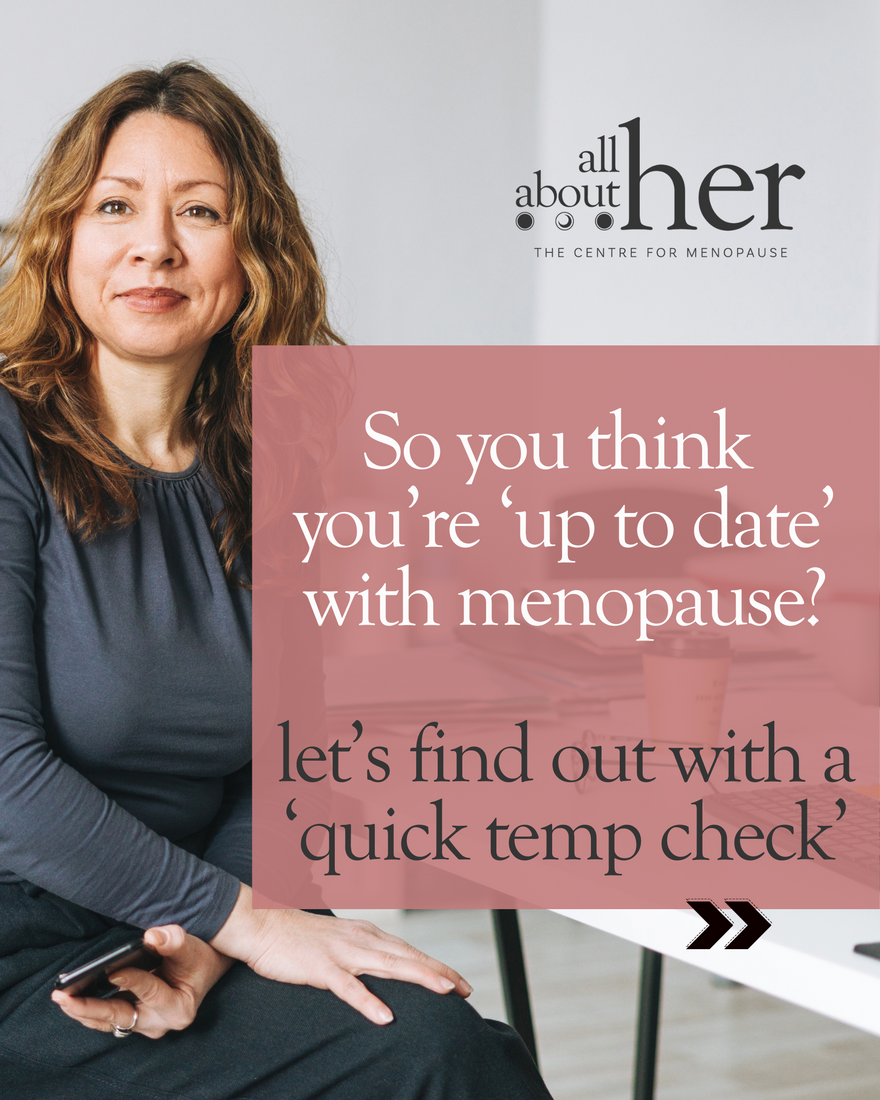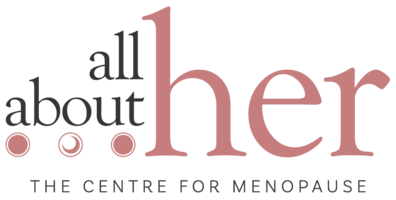
Many health professionals believe they have a solid understanding of menopause, but there are still many common misconceptions and outdated pieces of advice circulating. Here are a few examples:
- "It's just hot flashes."
- "It's a natural part of ageing, nothing to worry about."
- "You're just depressed - go talk to your doc about anti-depressants."
- "If you're midlife aged and depressed, the only approach is hormone therapy."
- “If HT doesn’t work, there is something wrong … with you”
With that sort of lack of education and awareness far too common, it’s no wonder so many women find their concerns about life-impacting or even life-changing symptoms fall on deaf ears.
This was the experience of our founder Kirstin Bouse when she went looking for support for her menopause transition symptoms and was HORRIFIED at the lack of educated, aware and supported health professionals working in this space.
So let’s do a Meno Basics “Temp Check”
Perimenopause - A Time of Recalibration
Perimenopause, the transition period before menopause, is a time of recalibration. It's marked by significant physical, psychological, and cognitive changes.
The timing and symptoms vary widely among individuals, often beginning up to 10 years before the final menstrual period - which means even women in their mid to late 30s can already be experiencing the symptoms.
Perimenopause - The REAL TRUTH about it’s impact
Although earlier sources quote that around 20% of individuals with ovaries experience significant symptoms, a recent Menodoctor Survey Australia, showed that of 5095 respondents, 63% described their symptoms as severe or very severe (1).
Perimenopausal symptoms can include both those associated with oestrogen excess, and oestrogen deficiency and declining progesterone and testosterone levels. And on top of that, they affect other neurotransmitters that contribute to our well-being (here’s looking at you ADHDer’s).
Recognising the Symptoms: It’s (so much) More Than Just Hot Flushes
Menopause impacts every facet of life – from the physical and psychological to the cognitive. What most women don’t know is that the psychological and cognitive stuff can show up well before the physical symptoms. These symptoms can be mistaken for or put down to “doing too much” or “burnout” - whilst this may be true, it is also possible that burnout and perimenopause have collided to create them!
Here’s the most common symptoms:
Cognitive Symptoms
- Forgetfulness
- Memory lapses
- Brain fog
- Lack of concentration
- Word-finding difficulties
- Decreased ability to deal with stress
Psychological Symptoms
- Mood swings or mood changes
- Anxiety and depression
- Loss of motivation
- Loss of confidence
- Identity shifts and/or confusion
- Social withdrawal
- Body image challenges
- A strong drive for autonomy and self-fulfilment
Physical Symptoms
- Menstrual cycle changes
- Hot flushes and night sweats
- Body and joint pain
- Vulval and vaginal dryness
- Fatigue and sleep issues
- Muscle tension
- Decreased libido
- Hair loss
- Headaches/migraines
- Pelvic floor issues including incontinence
Menopause: The Big Shift
Menopause itself is diagnosed after 12 consecutive months without a menstrual period. Typically occurring between ages 45 and 55, it signifies the end of the reproductive years. The average age in Australia is 51 to 52.
Menopause can occur naturally or be induced by medical treatments such as oophorectomy or chemotherapy.
So - how did you go with our Meno Basics Temp Check?
Alert and informed, and pretty much where you expected to be?
Or did you find some holes in what you thought was a pretty good level of understanding and awareness?

Download your FREE copy of A Paradigm-Shifting Approach to Perimenopause & Beyond Guide here:
And learn how to become a Heart-Driven, Meno-Aware Health Professional, because midlife women DESERVE to be seen, heard and truly supported and you DESERVE the evidence-backed education and experienced community support to provide this support with confidence!

Comments